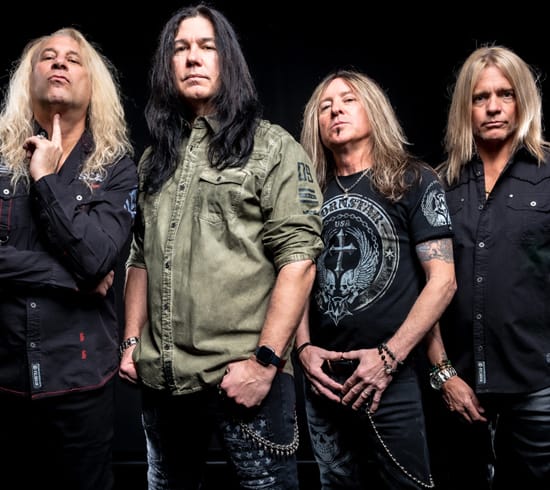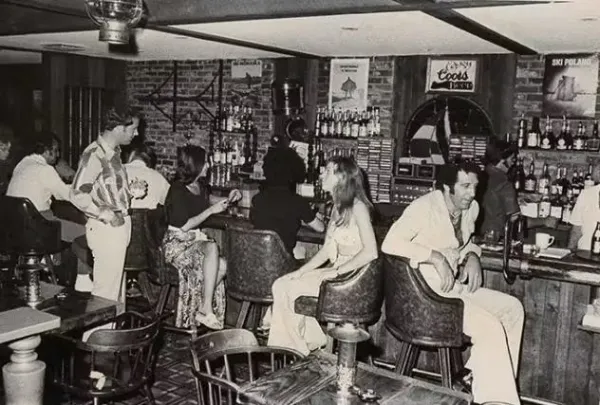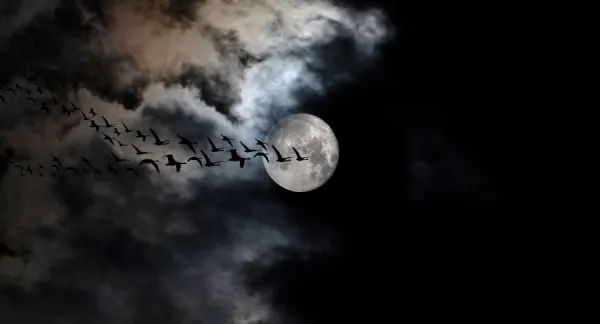Before The Killers, there was Slaughter

CELEBRATING THE 20th anniversary of their debut album Hot Fuss, The Killers recently wrapped a 10-show residency at Caesars Palace. Which is, like, peak hometown. To say that The Killers have been enshrined in the story of modern Las Vegas is to state the glaringly obvious – but it's maybe less obvious to consider how Las Vegas has been enshrined in the story of The Killers.
I guess I mean something subtler and fuzzier than merely observing The Killers' various album-title name-checks – Sam's Town, Imploding the Mirage, Battle Born – that dutifully tick the "hometown cred" box with evocations of mood and place that may seem orphic to outsiders. I'm reaching back further to a feeling that was in the desert air in the early aughts, a sense that some fundamental validation of Las Vegas was imminent.
For instance, it felt almost vaguely flattering that we were part of the chewy monstrous center of the real estate bubble, that an eccentric shoe company CEO moved his company to Southern Nevada as an opening gambit for transforming Downtown, and that a rock band that formed via classified ads in the Las Vegas Weekly put out a debut album that rocketed to No. 7 on the Billboard 200. In particular, The Killers' emergence suggested that Las Vegas was capable of producing something artistically consequential beyond lots and lots of postmodern architecture.
There was a snarky music-scene in-joke tied to The Killers breaking out of Las Vegas. The joke was that The Killers broke the "Slaughter Curse." The Slaughter Curse was the grim, fatalistic notion that, boo hoo, Vegas' most significant musical export to the world is and will always be the hair metal band Slaughter. The somewhat snooty implication being: We're worthy of a much better cultural commodity. The idea of breaking the Slaughter Curse really seemed to pressurize in the '90s, when more than a few folks in the music scene, with not the merest whiff of lol, would say things like, "Vegas is the next Seattle."
All of which is kind of funny because in retrospect, Slaughter's success itself was improbable – which isn't to say it was undeserved. A respectably proficient party metal band whose image was sort of anti-image – no-frills, vaguely working class, comparatively wholesome bros-next-door – Slaughter burned bright but faded fast. Slaughter was a shooting star that more or less demarcated the end of the heavy metal era and the rise of grunge.

Slaughter's 1990 debut album, Stick It To Ya, (is there a more party metal album title than that?) went double platinum and charted at No. 8, powered by the hit "Up All Night." By contrast, their third album, 1995's Fear No Evil, charted at 182 and was, well, quite literally only big in Japan. This tells the story not of a one-hit wonder but rather of a band that, by virtue of pretty much nothing other than timing, was born a relic. Slaughter was decidedly old-fashioned – even quaint – in other ways. The band prided itself on its approachability, absence of pretension, and what you might call a rock 'n' roll customer-service ethic, a durable virtue they believed would steer them through the rocky vicissitudes of the music market. I mean, one time they mailed free demo tapes to their 32,000 fan club members. In a 1992 interview, Slaughter bassist Dana Strum told The Chicago Tribune:
"After we sold a couple million albums, everyone thought we'd become elite. Everyone was looking to the Seattle bands, and they won't deal with the fans. I'd like to see where Nirvana is five years from now. I'd like to see how long Guns N' Roses fans are going to put up with them canceling shows and not letting the fans get near them."
It's tempting to play the hindsight card and be like ha ha ha, but Slaughter gets the last laugh. I said they burned bright and faded fast – but they've hardly faded away. Operating on that same artisan's ethos that endeared them to fans, the band is still touring. Sure, they're playing venues like cruise ships and regional casinos, but, hey – true to the spirit of Slaughter – it's honest work. ✦
Oh also:
From Jeff Murphy on Facebook: "One of my earliest adventures in staying 'Up All Night' was an Xcursion (an '80s band fronted by Mark Slaughter) house party on the southeast side of town, where I made out with the drummer's sister & woke up in the front yard behind a bush the next day when the sprinklers came on. Had to walk to the nearest 7-Eleven (Trop & Sandhill) to call my mom to pick me up (I lived in Spring Valley). Got put on restriction for like a month."





